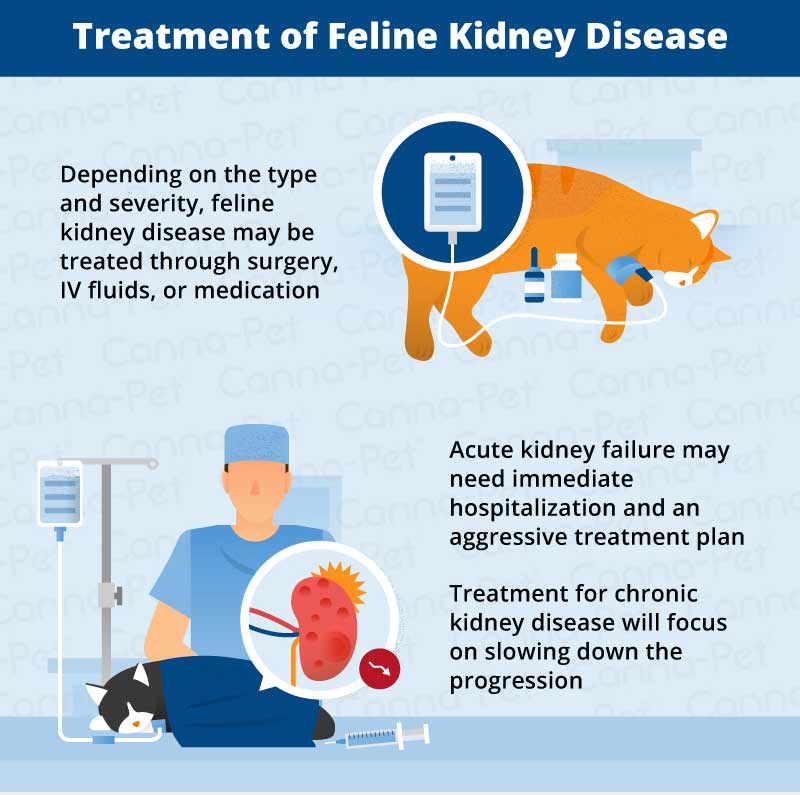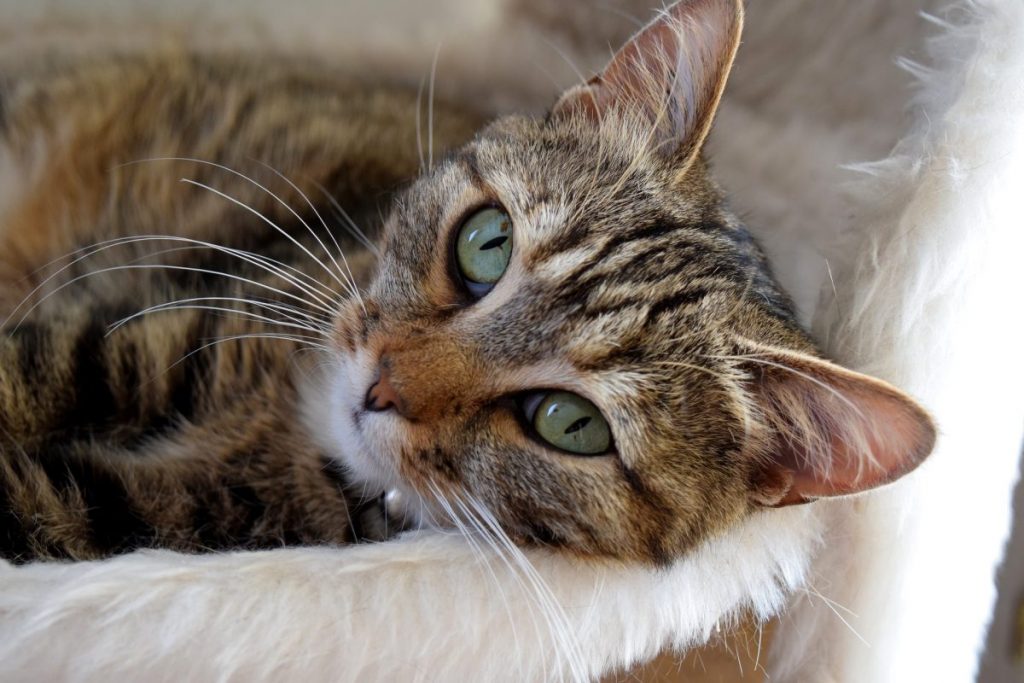The kidney is a vital organ in the bodies of both humans and cats, filtering blood which circulates back to the heart, and excreting waste in the form of urine. When the kidneys break down, toxic waste products can build up in the bloodstream, causing severe complications that affect the rest of the body.
Unfortunately, cats are prone to developing a dysfunction of the kidneys which, if left untreated, can lead to severe illness—even death. More than 30% of cats will get kidney disease at some point of their lives, but older cats are even more likely to develop chronic kidney disease. By age 15, more than 50% of cats develop the disease in some form.
As one of the leading causes of severe illness and death, kidney disease is a fear that many cat owners experience. Knowing the risks and symptoms early on, however, will equip you to catch kidney failure before it progresses.
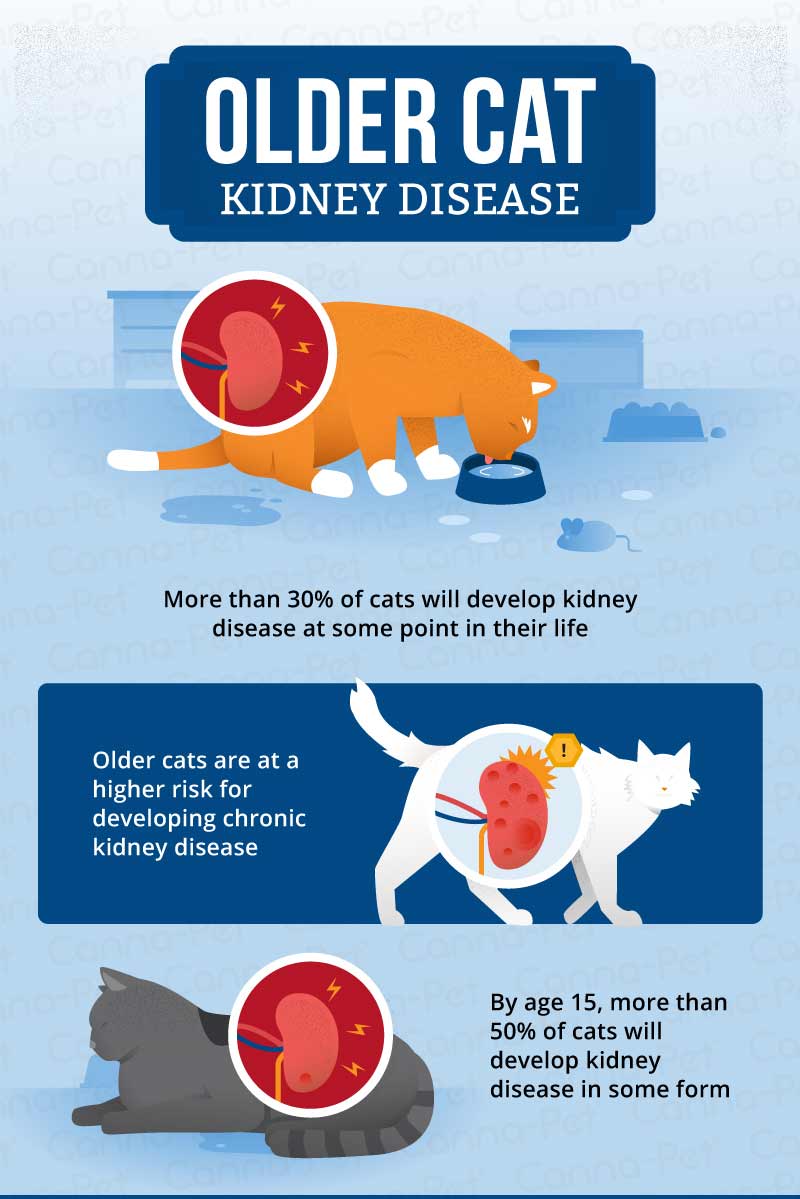
Acute Kidney Disease: Causes and Symptoms
Although kidney disease can be inherited—namely by Persians, Himalayans, and British Shorthairs—it is more often acquired and categorized as either acute kidney failure (or injury) or chronic kidney disease.
Common causes of acute kidney failure include:
- Poisons like antifreeze, pesticides, plants, cleaning fluids, and some human medications like ibuprofen
- Interferences with blood flow from the kidney
- Trauma, especially with a broken pelvis or burst bladder
- Shock from rapid blood loss, dehydration, or overheating
- Kidney infection
- Heart failure with low blood pressure, which reduces blood flow
If caught early enough, acute kidney injury can be treated in order to reverse the damage done.
Chronic Kidney Disease: Causes and Symptoms
While acute kidney injury can happen relatively quickly with signs that appear over a week or a month, chronic kidney disease is incurable with a longer onset (months to years) and plagues middle-aged and older cats more than others.
Although the exact cause is unknown, possible causes include:
- Kidney infections
- Kidney blockages
- Other conditions, such as high blood pressure, thyroid problems, dental disease, and cancer

Signs and Symptoms of Kidney Disease in Cats
Early diagnosis is challenging with chronic kidney disease, which often produces no visible signs early on. Signs and symptoms in later stages of kidney disease include:
- Increased thirst
- Frequent urination, including urination outside the litter box
- Bacterial infections in the bladder and/or kidney
- Weight loss
- Decrease in appetite
- Tiredness or fatigue
- Vomiting
- Diarrhea
- Bloody or cloudy urine
- Mouth ulcers on the gums and tongue
- Bad breath
- Dry or disheveled coat
- Constipation
- Weakness and other personality changes like indifference
If you suspect kidney disease, take your cat to the vet as soon as possible.
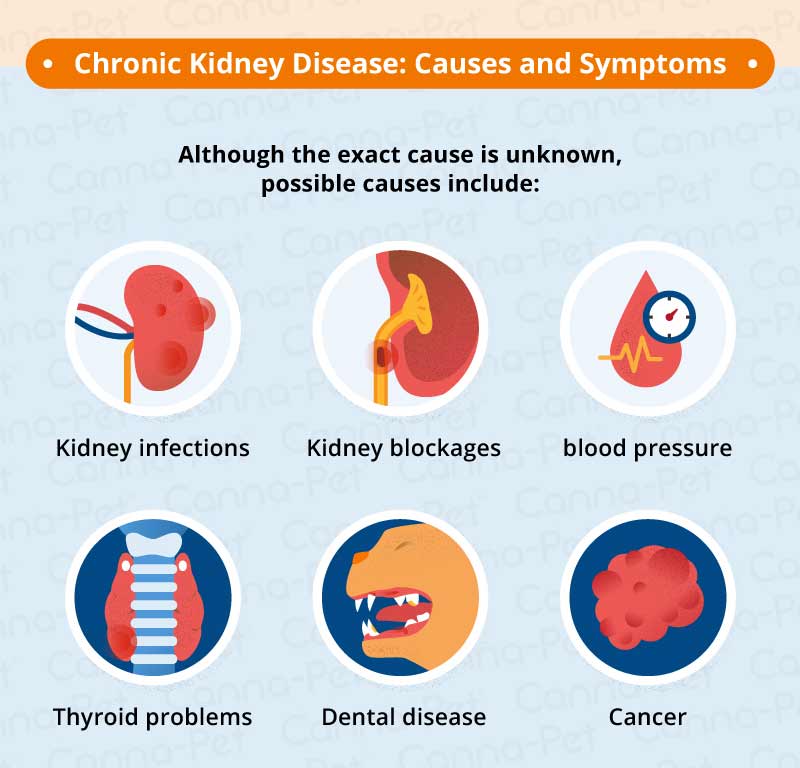
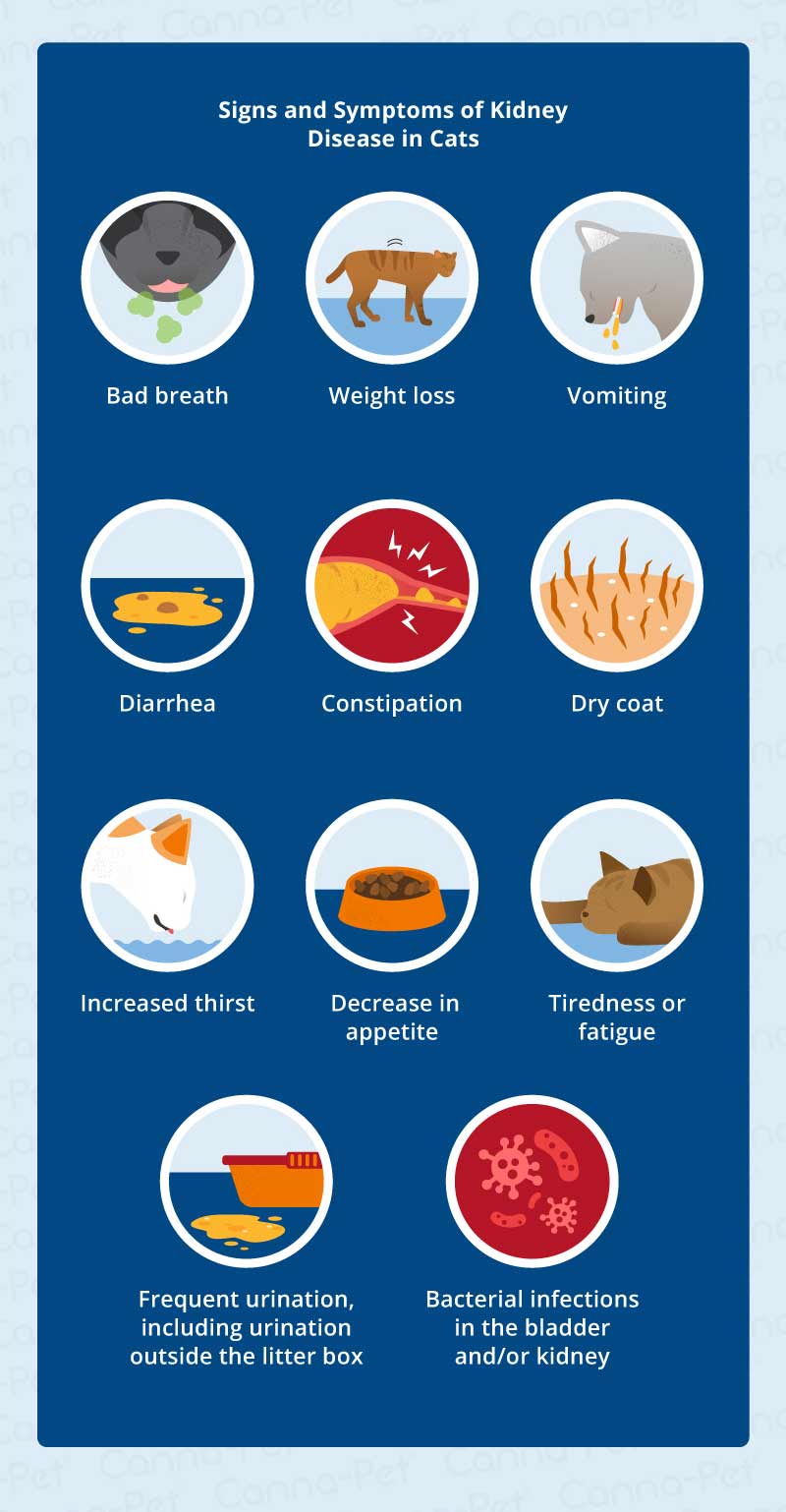
How to Prevent Kidney Disease in Cats
The best way to prevent kidney disease is to know what you’re up against as a cat parent. A few preventative measures to note:
- Be aware of harmful toxic substances
- Keep ethylene glycol antifreeze out of the household. There are less toxic versions available.
- Human and veterinary medications should be kept out of reach at all times.
- Lilies are especially dangerous to a cat’s kidneys. Keep them out of your house, and your yard.
- Schedule regular appointments with your vet
- It’s important to visit the veterinarian twice a year for regular check-ups, especially as your cat ages. Wellness screenings offer the best chance of catching kidney failure upfront in order to administer effective intervention.
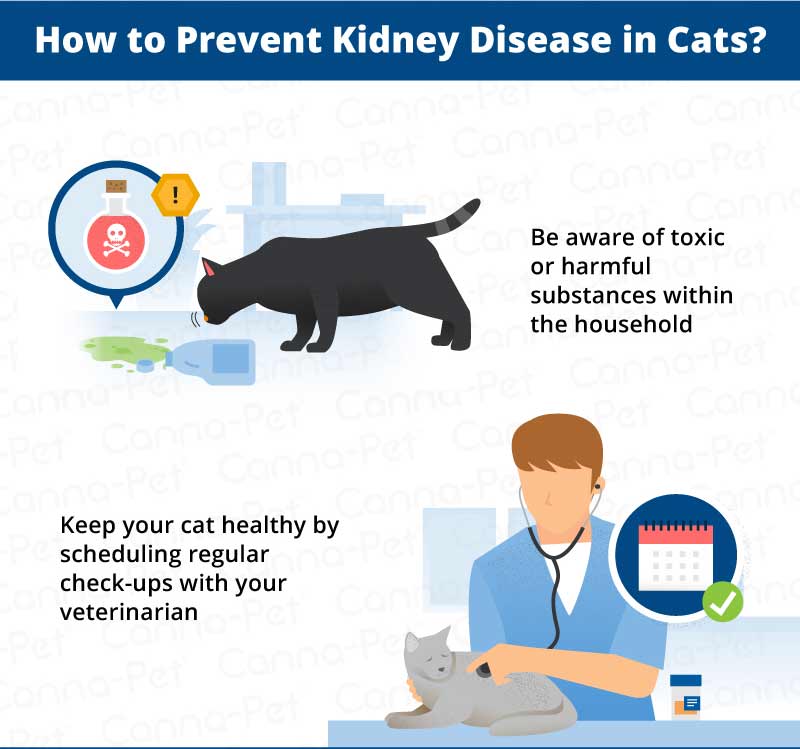
Diagnosing Feline Kidney Disease
In order to diagnose and treat disease, your vet may perform a variety of tests. The first test consists of a biochemistry panel on the cat’s blood, accompanied by a urinalysis. This panel will look at the concentration and number of compounds in the blood.
Your veterinarian may also look to other tests, including blood tests, x-rays, an ultrasound, and/or a biopsy or a tissue sample. Treatments can include surgery, IV fluids, or medication. You may also be required to inject fluids under your cat’s skin at home.
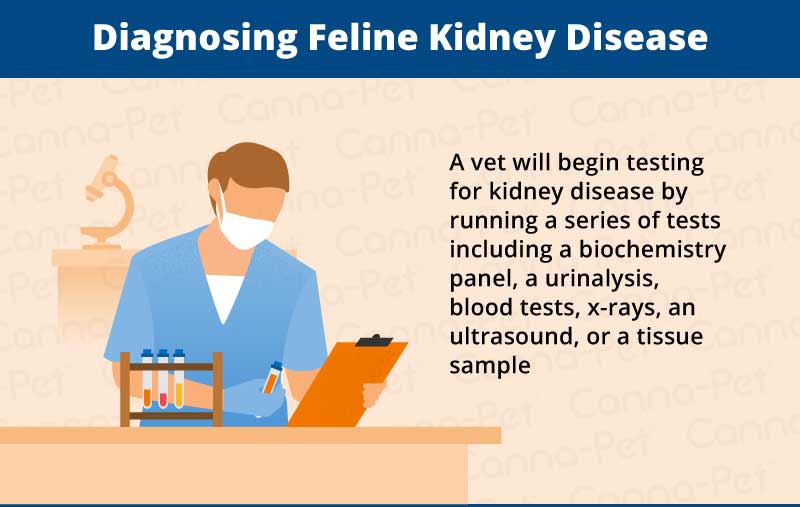
Treating Kidney Disease in Cats
Treatment will depend on the disorder and the extent of damage. Acute kidney failure can lead to hospitalization and will need aggressive treatment if it proves an immediate threat to your cat’s life.
Treatment of chronic kidney disease, on the other hand, is focused on slowing down progression. Your vet may prescribe treatment in the form of a carefully managed kidney diet, which is low in both phosphorus and protein, enriched with vitamin D and omega-3.
With careful attention to this new diet, accompanied by fresh, clean water, a peaceful home, and regular visits to the vet, your cat can be on her way to an optimal life.
